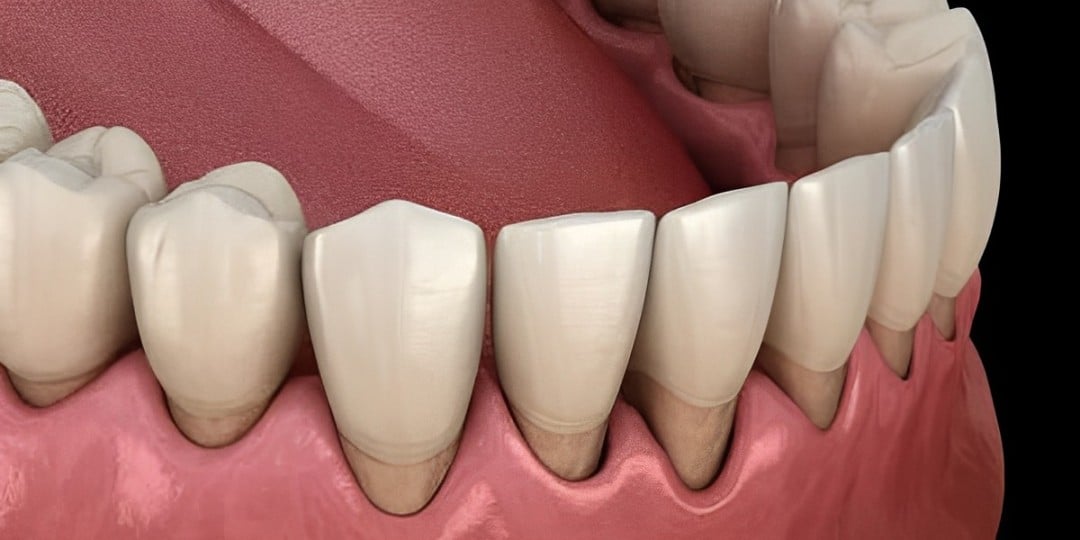Published on September 16, 2024

Gum recession can be a surprising and concerning issue, especially after major dental work.
Have you ever wondered how a dental procedure could affect your gums?
It’s crucial to understand the connection between these treatments and your gum health. Many people assume that dental work will always lead to a healthier smile, but that’s not always the case.
Let’s explore how certain procedures might contribute to gum recession and why awareness is key to maintaining your oral health. In this blog, we’ll dive into the various types of major dental work and their potential impact on your gums. We’ll highlight the signs of gum recession to watch for and discuss preventive measures you can take before and after any procedure.
Whether you’re planning a dental visit or have recently undergone treatment, understanding the risks can empower you to make informed decisions. Join us as we uncover the facts and equip you with the knowledge to protect your smile and gums!
What is Gum Recession?
Gum recession occurs when the gum tissue pulls away from the teeth, exposing more of the tooth’s surface or even the tooth’s root. This condition can lead to several complications if left untreated.
- Common Symptoms: Signs include tooth sensitivity, visible tooth roots, and a longer appearance of teeth. You might also notice that your gums appear red or swollen.
- Potential Complications: Untreated gum recession can lead to tooth decay, increased sensitivity, and even tooth loss.
- Prevalence and Risks: According to studies, about 50% of adults over the age of 30 experience some degree of gum recession, highlighting its commonality and the importance of awareness.
Understanding gum recession’s definition, symptoms, and complications sets the stage for recognizing its potential link to major dental work. Taking the time to understand this condition can empower you to seek timely intervention and maintain better oral health.
Exploring Major Dental Procedures
When we talk about major dental work, it encompasses various procedures that can impact your overall dental health. Here are some common types of dental work:
- Implants: Dental implants involve placing a titanium post in the jawbone, which can alter gum contours and sometimes contribute to recession.
- Crowns: Crowns cover damaged teeth, but improper fitting can lead to irritation of the gums.
- Extractions: Removing teeth can lead to adjacent gum tissue changes, increasing the risk of recession.
These procedures, while often necessary, can affect gum health if not performed carefully. Understanding how these treatments work helps you anticipate potential impacts on your gums and overall dental health.
How Major Dental Work Can Lead to Gum Recession?
Several factors during dental procedures may contribute to gum recession. Let’s take a closer look:
- Technique and Equipment: Improper use of dental tools can irritate the gums. Excessive force or incorrect angles can damage tissue.
- Patient-Specific Factors: Individuals with pre-existing conditions, such as periodontal disease, may be more susceptible to gum recession after dental work.
Being aware of these factors can help you discuss potential risks with your dentist, enabling you to make informed decisions about your dental care.
Recognizing Gum Recession After Dental Procedures
Identifying gum recession after a dental procedure can be tricky. Here’s how to tell if you might be experiencing this issue:
- Early Symptoms: Look for signs like increased tooth sensitivity or exposed tooth roots. You might also notice changes in your gum line, such as teeth appearing longer than usual.
- Normal Discomfort vs. Recession Indicators: Some discomfort is common after dental work. However, if you experience prolonged sensitivity or gum bleeding, these could be signs of recession.
Being proactive about recognizing these symptoms helps you seek timely professional advice, minimizing the risk of further complications.
Preventive Strategies During Dental Procedures
Taking precautions before and during dental procedures can significantly reduce the risk of gum recession. Here’s what to consider:
- Choosing the Right Professional: Always select a qualified dentist with experience in your specific procedure.
- Minimizing Risks: Discuss techniques that your dentist uses to minimize trauma to your gums. Techniques like gentle tissue handling can significantly impact your recovery.
- Pre-Procedure Consultations: Don’t hesitate to ask questions during your consultation. Inquire about the expected process, potential risks, and aftercare. Clear communication lays the foundation for a successful outcome.
By prioritizing these steps, you create a safer environment for your dental work, ultimately protecting your gums.
Post-Procedure Care for Healthy Gums
After major dental work, caring for your gums is crucial to prevent recession. Here are some key practices:
- Aftercare Importance: Proper aftercare helps your gums heal effectively, reducing the likelihood of recession.
- Oral Hygiene Practices: Maintain a gentle but thorough oral hygiene routine. Use a soft-bristled toothbrush to avoid irritating healing gums.
- Dietary Recommendations: Focus on soft foods and avoid hot or spicy dishes that might cause discomfort. Staying hydrated is also essential for healing.
By adopting these practices, you can promote optimal gum health and recover more effectively after dental procedures.
When to Seek Professional Help for Gum Recession?
Recognizing the signs that indicate the need for professional help is essential for maintaining oral health:
- Signs to Watch For: Increased tooth sensitivity, bleeding gums, or noticeable changes in your gum line signal a need for evaluation.
- Treatment Options: If gum recession occurs, treatment options may include scaling and root planing, gum grafting, or guided tissue regeneration.
Understanding the relationship between major dental work and gum recession is vital for maintaining oral health. By being proactive you can minimize risks and ensure healthy gums. Remember, early detection of gum recession can lead to better outcomes. Stay vigilant and prioritize your gum health. Your smile deserves the best care!
